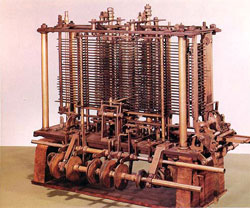Logic

Mathematical logic is the study of the strengths and limitations of formal languages, proofs, and algorithms and their relationships to mathematical structures. It also aims to address foundational issues in mathematics.
Logic relates to theoretical computer science through computability theory and proof theory, to algebra, number theory, and algebraic geometry through model theory, and to analysis and ergodic theory through set theory and infinite combinatorics.
Field Members
Type theory and automated reasoning
AI, security, and game theory
Computational theory, computational algebra and logic, logics and semantics of programming languages
Set theory, mathematical logic, and group theory
Mathematical logic, computability theory, computer science, mathematics of AI, control engineering, quantum control of macroscopic systems
Mathematical logic, recursion theory, effective and reverse mathematics, set theory
Emeritus and Other Faculty
Representation theory of p-adic groups, and motivic integration
Symplectic geometry: group actions on manifolds, pseudo-holomorphic curves, and model theory.
Descriptive set theory and combinatorics
Mathematical logic, model theory
Graduate Students
logic
Activities and Resources
- Logic Seminar
- Theory of Computing research group (Computer Science)
- Database Systems research group (Computer Science)
- Artificial Intelligence research group (Computer Science)